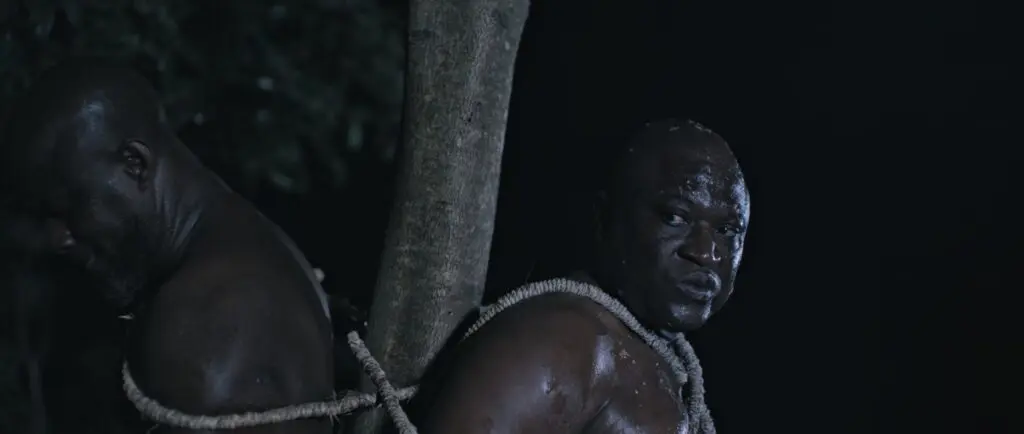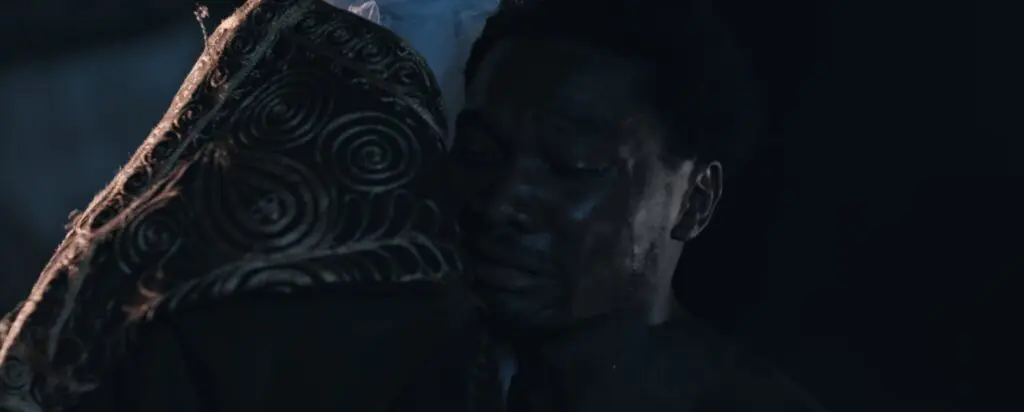It feels like, in some way, that Bashorun Ga’a was orchestrating his downfall before it even began. A violent leader, seemingly paraplegic due to curses applied upon him by seers, decides to sacrifice the beloved Princess Agbonyin at the end of House of Ga’a to regain the feeling in his legs.
Bashorun Ga’a’s attempt to consolidate power throughout the movie always appeared reckless, but there was a purpose behind it. However, once his legs go, he feels a real sense of power taken away from him. Killing Princess Agbonyin was an overstep that defied logic, even in these times when violence signified rule.
Bashorun Ga’a seemingly gets the feeling back in his legs, but the sacrifice to uplift the apparent curse was a casus belli for the Oyo Kingdom. After this, the leaders plot to kill Bashorun Ga’a and destroy his lineage to instill a deterrent and avoid future tyrants. Ga’a falls right into their hands, asking for all his sons to return in time for the Orun festival.
Oyemekun, his son, is furious. He has spent a good measure of his life in love with Princess Agbonyin, but due to circumstances involving power and allegiances, he was unable to marry her. Even his father, Ga’a, decided to marry her when she was widowed—a strange decision on the leader’s part that caused further despair for his son.
Oyemekun is furious at his father’s decision to have Princess Agbonyin sacrificed and kills Sasa L’eniyan, who has been performing rituals for Ga’a and was the executor for the Princess.
The Orun festival arrives; Aare and Alaafin Abiodun gather their warriors on the border of Oyo. The attack is ruthless, and the Ga’a House desperately tries to fight back in a war they should have expected. However, they are defeated with ease, and many of Bashorun Ga’a’s lineage are killed.
However, Oykeum escapes before the warriors reach him, and he hides in Llorin, where he learns of his father’s fate. Oyemekum begs not to be handed back over in Oyo, knowing he will be killed, but instead, they give him a new name—Gbangbalasa. Princess Agbonyun’s son lived with his grandfather, King Abiodun, in Oyo-Ile. So, Bashorun Ga’a’s lineage was not wiped out completely, but it was certainly fractured and unspoken.

Bashorun Ga’a (R) before he’s burned to death in ‘House of Ga’a’ (Credit – Netflix)
As for Bashorun Ga’a himself, he and his wife, Zeinab, were captured fairly quickly during the attack. Zeinab betrays her husband and claims to be a slave, so she is let go. Ga’a is then paraded and shamed around Oyo. While on the stake, ready to be executed, he tells the people that they will bring Oyo down before he is burned to death.
The ending of House of Ga’a is unforgiving. Seeing entire lineages wiped out as a deterrent was a gruesome reimagining of how old Kingdoms operated. There was no time for mercy or compromises. Also, the ending represents how great this film is; it really works hard for an epic, effective third act.




